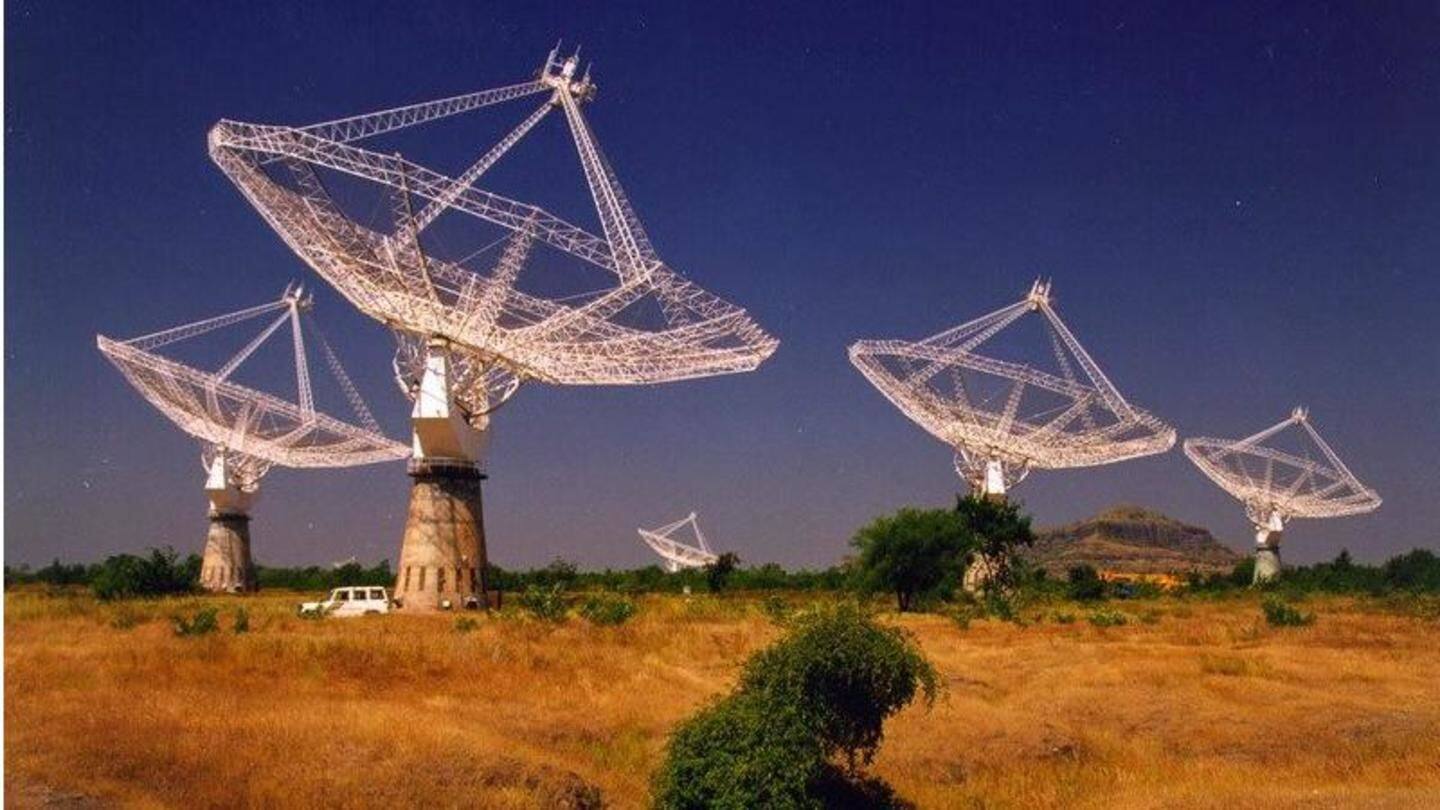
Astronomers discover distant radio galaxy ever using Indian telescope
What's the story
Astronomers have used an Indian telescope to discover the most distant radio galaxy ever known, located at a distance of 12 billion light years. The galaxy was found using the Giant Meter-wave Radio Telescope (GMRT) in Pune. GMRT is an array of thirty fully steerable parabolic radio telescopes of 45-meter diameter. It is operated by the National Center for Radio Astrophysics in Pune.
Information
Galaxy is a from the time of formation of universe
The distance to this galaxy was determined using the Gemini North telescope in Hawaii and the Large Binocular Telescope in Arizona. The galaxy is from a time when the universe was only 7% of its current age.
Quick formation
Astronomers surprised over the quick formation of the galaxy
The galaxy is perceived as it looked when the universe was only a billion years old, means the light from the galaxy is almost 12bn years old, according to the study in the journal Monthly Notices of the Royal Astronomical Society. "It is surprising how these galaxies have built-up their mass in such a short-period of time," said Aayush Saxena from Leiden Observatory, Netherlands.
Rare bodies
Radio galaxies have a big black hole in the center
"Bright radio galaxies harbor supermassive black holes. It is amazing to find such objects as early in the history of the universe," said Huub Rottgering, also from Leiden Observatory. Radio galaxies are very rare objects in the universe. They are colossal galaxies with a supermassive black hole in their center that actively accretes gas and dust from its surroundings.
Important discovery
Researchers say such discoveries important for understanding formation of galaxies
Accreting gas and dust launches of high-energy jet streams, which are capable of accelerating charged particles around the supermassive black hole at the speed of light. These jets are very clearly observed at radio wavelengths. "The discovery of such galaxies at extremely large distances is important for our understanding of the formation and evolution of galaxies, including formation of primordial black holes," researchers said.